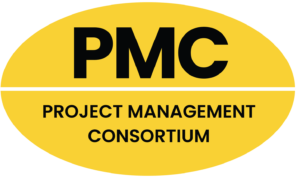Project management revolves around maintaining your predictability while mitigating the risks involved effectively. Regardless of the strategies you use, you need to ensure that the project is completed successfully. If you find yourself performing poorly on projects or failing to meet the deadlines, it’s time to review your practices.
Let’s face it. Making errors in the workplace cannot be avoided. The more errors you make, the faster you learn. You will feel like a failure when you make countless mistakes on your project. However, your ability to get up and learn from your failures is a prerequisite for success.
Small mistakes can have a serious impact on your budget too. So, what can you do to avoid making the common project management mistakes? Let’s find out what they are and how you can avoid them.
1. Not setting clear goals
Many project managers start working on their projects without setting goals. Your team might have a desired result in mind.
However, they have a hard time pinpointing the goals they want to achieve or measuring their progress. This is a common mistake that can take you off track regardless of the time you’ve spent planning for your projects. Lack of clear goals is one of the leading causes of project failure.
You need to meet with your team and define their duties and responsibilities as soon as possible. A kickoff meeting will allow you to set or define your expectations. This will make the team organized and accountable in the long run.
According to best essay writing services, you should always set SMART goals. Also, using records from other projects that were completed successfully will help you manage your current projects successfully.
2. Assigning people wrong roles
It’s important to take your time when assigning roles to your team members because how they fit into the entire project will determine its success or failure. Successful project managers analyze what the project needs and makes use of the strengths of his or her team members.
Apart from mixing the right skills, you should know how to mix personalities. After all, you can’t expect your team members to work together if they can’t get along with each other.
Keep in mind that the success of any relationship is dependent on the individuals’ personalities and not their skills. When you assign roles without considering personalities and skills, your project won’t make any progress. And you’ll end up losing your clients.
3. Failing to break down the project
For every large project you’ll receive, it’s always crucial to break them down into small manageable chunks that are easier to tackle and complete. Failing to do this will leave your team frustrated and overwhelmed.
To break down the project, you’ll have to analyze and understand it. Then, assign the chunks to the team members according to their skillsets and strengths. Breaking down the project will motivate your team to work harder. It’s essential to use digital tools to handle this type of thing. Let’s say you want to optimize the data and information within your project so everyone remains on the same page throughout the entire thing. Using construction project management software can help at all points of contact, from the front office and job site to the field. Software like this is typically cloud-based and has a very low learning curve, making it a seamless transition to break down every role in the project to optimize the entire process. Integrating project controls with other software solutions or existing tools can also help you accomplish this task.
4. Abandoning the team
After the kickoff meeting, most managers never check in with their team until the eleventh hour. How do you expect your team to complete the project successfully if you are not measuring their performance and engagement regularly?
As a team leader, you have to check on the progress of your team regularly and make adjustments accordingly. When you check in regularly, you’ll create a sense of accountability for your team members. It also communicates that you are available in case a problem arises.
A survey conducted by the Harvard Business School found out that majority of the most successful project managers checked on their team daily. It doesn’t matter if you are very busy so long as the check-ins are regular and predictable. You can do it on a daily or weekly basis.
5. Failure to manage scope creep
According to PMI, scope creep is an additional feature or requirement that has not been authorized or agreed upon. As an experienced project manager, you must be familiar with it. Your client asks you to make minor changes on the project.
To keep your client happy, you agree to it because it won’t take a lot of time or energy. However, when implementing the changes, you discover that they have entirely shifted the goals of the project. Scope creep occurs when there is no written agreement on the scope of the project.
To prevent scope creep, you’ll have to be on the lookout for every request made by your client. Involving your team anytime there are changes to be done will increase the chances of your success.
At times, you will find the change requests submitted by your client impossible to meet. Instead of rejecting the requests openly, you should discuss them with your client.
Explain to them why the request is out of scope and the time it will take to make the necessary adjustments. Most clients will understand your point of view so long as you have credible explanations.
Also, think of offering alternatives before rejecting the change requests. You should consider outsourcing the changes to third party contractors if your hands are tied.
Finally, keeping track of the changes being made by your team will help you see how the project is progressing. By doing this, you’ll be in a comfortable position to increase your budget or justify your reactions.
Conclusion
Once the project kicks off, you should be prepared for unexpected results or disasters. You cannot control the future however; you can always control how you respond. When the project gets derailed it’s important to be proactive instead of reactive.
You don’t solve anything by getting angry, complaining and blaming your team members or clients. How you manage your project crisis will determine the project’s success or failure.
Assess your risks daily and do all you can to reduce the likelihood of disasters. With these five tips, it shouldn’t be difficult for you to manage your projects successfully. Have an open mind, read books and blog posts written by successful project managers and trust your team.
Bio
Susan Saurel is professional digital marketer based in Houston, Texas. During her leisure time, she travels around the world and meets new people. She is eager to share her experiences and thoughts with her readers.






























